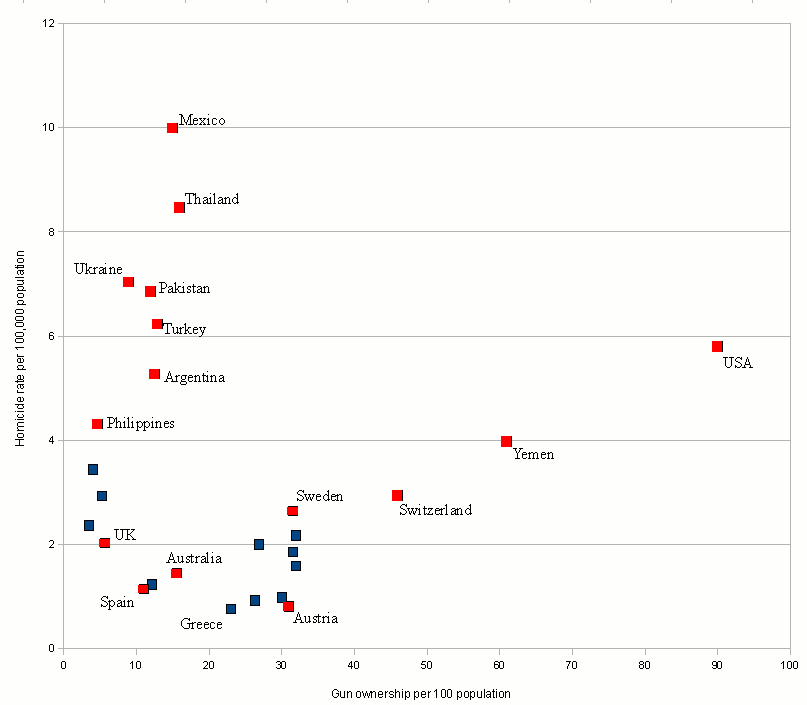You do realize the majority of all firearm related deaths are drug/gang related right?
Just to nitpick, but technically suicide is the leading cause of firearm related deaths in the US.
If you meant 'firearm related homicides' (someone killing someone else), drug/gang could very well be the top cause, but I'm not so sure that it is the 'vast majority'.
In Milwaukee, the AVERAGE victim of a homicide (yes, I realize this is all homicides, not just firearm homicides) had 12.4 previous arrests, and the suspects of the homicides had 12.8 previous arrests.
http://www.jsonline.com/news/crime/50947192.html
NOTE: Yes, I realize those stats are a little misleading, but overall it still means that if you are a criminal your chance of being a homicide victim greatly increases and the actual rate of being a victim when you have a clean, or minimal criminal record is quite a bit smaller than what people would think when they just look at the raw data of homicide rate for the whole country.
To be honest, some of the misleading parts of it is:
1. It doesn't say what their previous arrests were for. Gut reaction would think most of those are gang/drug related, but some of the arrests could be for bad checks, DWI, marijuana possession (not dealing), etc.
2. It used 'arrested' and not 'convicted'. Of course sometimes people are arrested and it turns out they are innocent. On the other hand, though they could have got some charges dropped in exchange for information about others, plea bargain etc. So they still may have actually committed whatever crime it was, but it has to be counted as 'innocent until proven guilty'.
-
But to anyone saying "compare the UK firearm death rates and what their current firearm laws are to the US firearm death rates and their firearm laws, so this proves that the ban work!".....
I'll remind them that the UK has ALWAYS had a much lower firearm related death rate compared to the US, even before all the restrictions and bans were put in place, such as the popular 1997 handgun ban in the UK.
http://forums.civfanatics.com/showpost.php?p=7977378&postcount=199
Littleton, CO used illegal guns, and in the Australian massacre while the guns were legal, the killer did not have a license for them, so he had them illegally. While there have been 'legal gun owners' who committed massacres, you can't say for certain that had they not already owned the guns they would not have been able to acquire the guns illegally.




